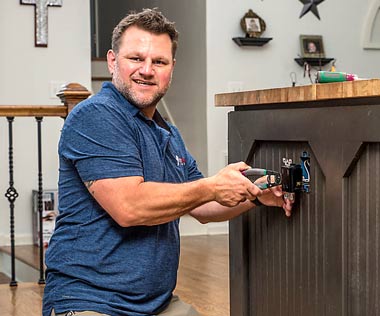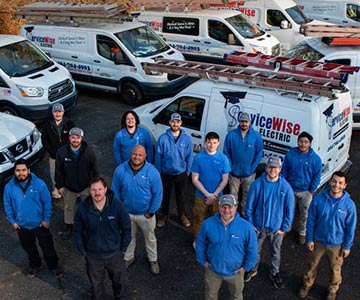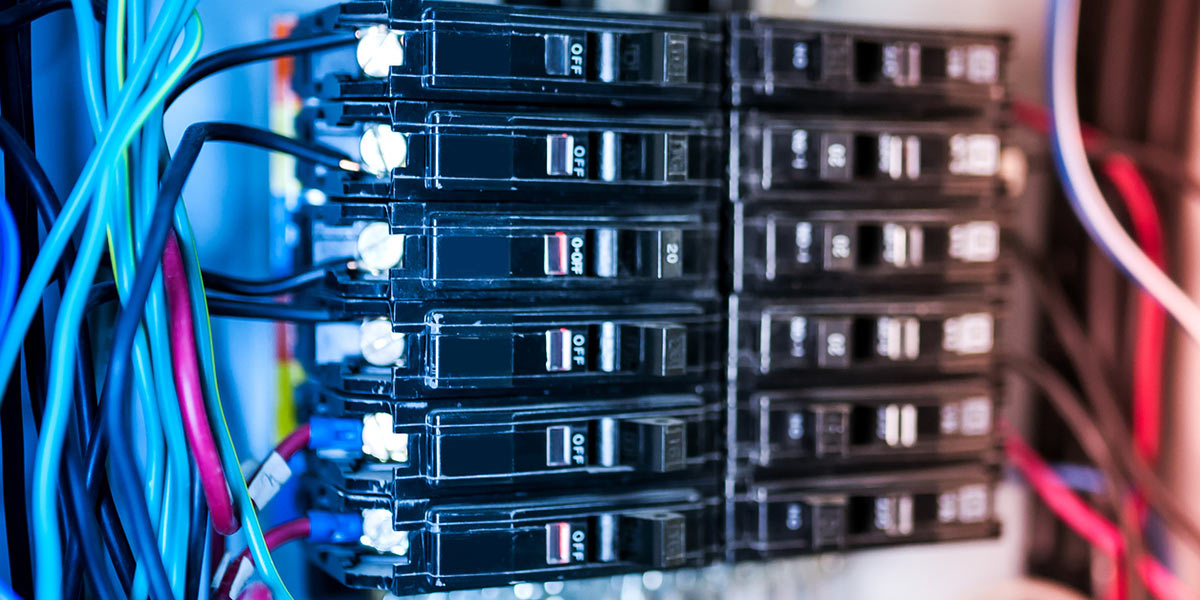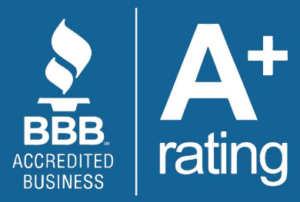Last updated on June 22nd, 2022 at 07:07 am
Electrical Remodeling: 11 Reasons to Get an Electrical Panel Upgrade
When remodeling, it is key to remember that an electrical panel upgrade may be needed. Old wires could be faulty or you could be installing new appliances.
Almost 1.32 million fires occurred in 2018 in the US. Of these, nearly 380,000 were home fires.
What’s more, 6.8% of all these structural fires — or over 25,000 cases — were due to electrical malfunctions.
Overloading, old wiring, and outdated circuit panels are only a few of the reasons for such fires. These, however, should be enough to prompt you to get your home’s electrical system checked out. A licensed technician will confirm if you already need an electrical panel upgrade.
The big question now is, why exactly should you upgrade your service panel? How can this even benefit you?
We’ll uncover the truth below, so be sure to read on!
1. You Always Get “Mini” Blackouts At Home
If these “outages” only happen in your home, chances are, you have a faulty circuit breaker. You should never ignore a malfunctioning circuit breaker, as this can lead to house fires.
How so?
Circuit breakers protect your home by cutting off the power during electricity overloads. These can occur when you force your main panel to continuously draw a lot of electricity. This usually happens when you run multiple high-wattage appliances simultaneously.
That said, “tripping” is a natural response of a circuit breaker to current overload. It must trip so that it can keep the panel from overloading and frying up your home’s electrical system.
If it keeps tripping though, that means that it can no longer keep up with your energy demands. In short, it’s old and outdated, so it’s best to get an upgrade.
2. You’ve Been Hearing Buzzing or Crackling Sounds From the Panel
Another possible cause of all those tripping events is a short circuit. In most cases though, a short circuit also produces buzzing, hissing, or crackling noises. These are sounds of live electricity.
A short circuit occurs when an active wire (also known as “hot” wire) touches another hot wire. It can also happen if a hot wire touches a neutral wire. Either way, this contact between the two wires generates a massive current flow.
The end result is often a tripped breaker. However, you may also notice burn marks on wall outlets or even breaker switches. Blown fuses are also common side-effects of short circuits.
3. There’s a Smoky Smell Coming Out of the Panel
Whenever your circuit breaker panel trips, see if there’s any smoky smell coming out of it. Check the switches if they have actual burn marks or spots. If they do, then that’s a solid sign of current overflow.
The burnt smell is usually an indication of overheated wires and insulation.
In any case, it’s best to get in touch with your local electricians. Your electric power box may still be working now, but not for long if it keeps shutting down. Besides, if it completely fails, your circuit breaker may not shut down at all.
4. Your Electrical Panel Says “FPE” On It
Between 1950 and 1980, Federal Pacific Electric (FPE) panels were common in US homes. Then, the Consumer Product Safety Commission started to investigate FPE in 1980. The CPSC found that these FPE breakers failed calibration test requirements.
Moreover, the CPSC found that almost, if not all FPE panels back then had defective breakers. In fact, one-third of all breakers in these panels had a defect.
Because of these problems, old FPE panels are a serious safety threat and fire hazard. According to estimates, these defective products may be behind 2,800 fires each year in the US.
Unfortunately, many of these FPE panels remain in older US homes. That’s a lot of homes, seeing as half of the nation’s owner-occupied homes have been around before 1980.
If you live in one of these old houses, it’s best to check who manufactured your electrical panel. If it’s FPE, have a licensed electrician replace your electrical panel as soon as possible.

Need More Than An Electrical Panel Upgrade?
If this is turning out to be more than you want to do over a weekend, we can help! Give us a call now so we can arrange your service schedule!
5. You Have a Panel From Zinsco
If your home electrical panel says “Zinsco” or “Zinsco-Sylvania”, it’s also a good idea to get that checked. Studies show that as much as 25% of these panels are also defective or faulty.
Most Zinsco and Zinsco-Sylvanie electrical panel issues are due to delayed overload response. Meaning, they don’t “trip” as soon as they experience a current overload.
Instead, they carry the excess load for a longer time. Give that overload enough time, and it can overheat your entire home’s electrical network.
Aside from frying up wires, overheating can also lead to electrical arcing. Arcing occurs when the electrical current strays beyond its normal route or pathway. This change can then result in an arc flash, which is like a giant ball of heat and light energy.
That alone should make you consider having your panel undergo a safety inspection. This way, a licensed technician can verify if your Zinsco panel is working or if it’s defective.
6. You Need to Amp Up to 100 Amps
You don’t need to have an FPE or Zinsco panel to consider upgrading — you should do so if it has a 60-amp rating. Such panels are still present in homes built around the 50s up until the mid-60s.
Even if yours is still working, a 60-amp fuse panel no longer meets modern standards. The National Electrical Code (NEC) standards now require at least 100-amp panels in the US.
Depending on your electricity demands, you can even go for a 200- or 400-amp panel upgrade.
7. You Have “Ghostly” Experiences At Home
Lights that dim, flicker, or even go on and off on their own? It’s more likely the work of an outdated electrical panel than ghosts.
These light issues usually happen a lot before a breaker ends up constantly tripping. Don’t wait for the latter — consider upgrading now before you have to deal with all those mini blackouts.
8. You’re Buying a Few More Electrical Appliances
Thinking of jumping on the home automation wagon? Perhaps you want to install security or smoke and carbon monoxide alarms. These are all good investments, but it’s possible that your current electrical panel is not up to par.
Although these devices may be energy-efficient, their addition can overload your electrical panel. Especially if you already have multiple high-wattage appliances at home.
9. You’re Thinking of Extending Your Home
Did you know that a two-story home addition can yield up to 65% return on investment? Even adding a master suite can give you an ROI of up to 63%!
Regardless of the type of home addition you want, it’s highly likely that you need a service panel upgrade. After all, that new living space would need multiple wall outlets and lighting. You may even be getting that new room its own wall air conditioner.
Once in use, all these extra electrical components can cause an older panel to overload. When that happens, your circuit breaker will trip, shutting down your entire home.
That’s why it’s best to get in touch with an electrician first before you carry out a major home improvement. This way, you can replace or upgrade your service panel as needed.
10. Your Switches and Outlets Get Too Warm
Light switches and wall outlets shouldn’t feel too hot to the touch. Dimmers may get a bit warm, but they shouldn’t feel like they’re burning. If they do, that means you’ve overloaded them with too many lights or ceiling fan connections.
Over time, all that excess current flowing to the switches and outlets will kill them. It may also blow fuses in your panel. You may have to upgrade your wiring system or your service panel itself.
11. You Need a Sub Panel
An electrical sub-panel is an extension of your home’s main panel. You may need one if you have a new room that you want to run electricity in, such as a finished basement. A detached garage may also need to have its own panel connected to the main one.
A sub-panel is still dependent on the main panel though. This means that it will draw power from the main, and not direct from the grid. That’s why it’s important to ensure that your main can handle the extra load placed by the extra panel.
A licensed technician will size up your main panel to confirm its capacity. From there, they will safely install and connect a sub-panel in any room that’s too far from the main panel.
Get An Electrical Panel Upgrade Before It’s Too Late
There you have it, your ultimate guide on why you should invest in an electrical panel upgrade. As you can see, it’s more for your own safety and security, as it can help keep your home from burning down. There’s also the benefit of keeping your electronics from getting all fried up.
So, if you find yourself in any of these situations, better get on the phone to ring up your local electricians! The sooner you do, the sooner you can have that new electrical panel.

Ready For Some Electrical Remodeling?
Ready to get your home’s electrical system and main checked out and possibly upgraded? We can help! Give us a call now so we can arrange your service schedule!









